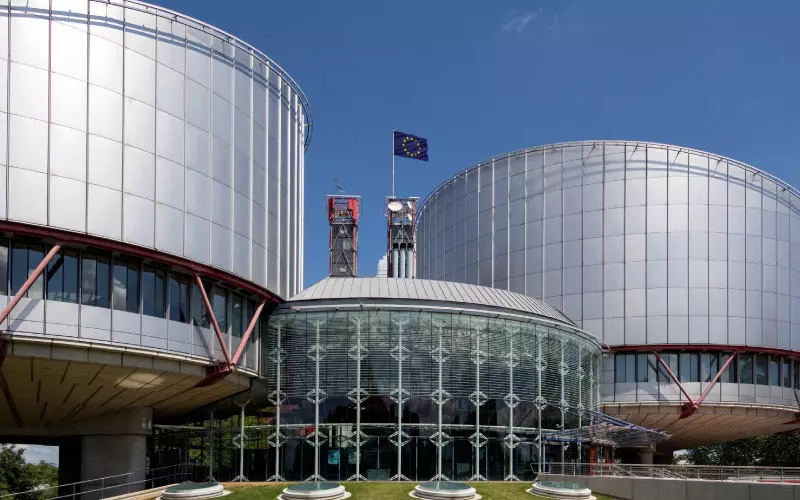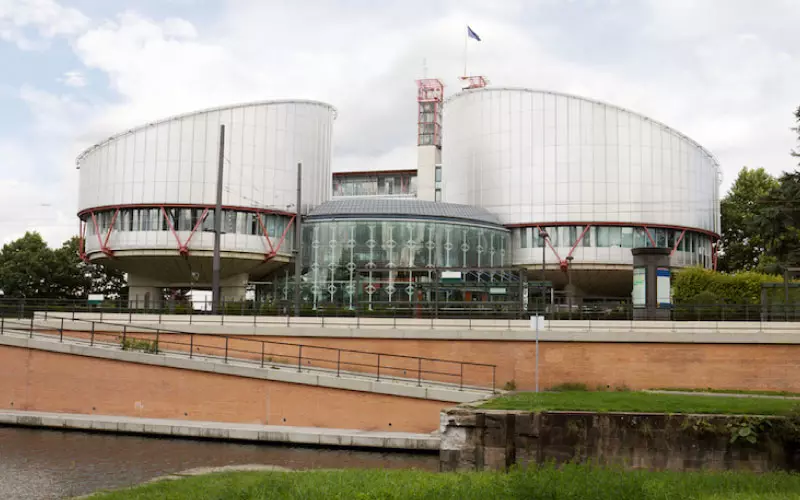European Court of Human Rights: what it is and how to appeal to the European Court of Human Rights (ECtHR)
The European Court of Human Rights, established in 1959, is a judicial body created after the entry into force of the European Convention on Human Rights (ECHR) in 1953 to ensure implementation and compliance.
It is based in Strasbourg and is a permanent organ of the Council of Europe, of which all 47 are therefore members.
Very often the ECHR is confused with the Court of Justice of the European Union, which is based in Luxembourg and is an actual institution of the European Union with very different competences, i.e. the enforcement of EU law and the interpretation and application of the founding treaties of the EU.
The ECHR Court is also very often confused with the International Court of Justice, which is instead an organ of the United Nations.
Since the European Court of Human Rights was set up specifically to hear appeals concerning alleged violations of the rights set out in the ECHR (appeals that can be lodged by member states of the Convention and by individuals), it is useful to clarify what the ECHR is!
Signed in 1950 by the Council of Europe, the Convention is an international treaty designed to protect human rights and fundamental freedoms in Europe.Any person whose rights have been violated under the convention by a state party may, with the assistance of a lawyer specialised in international law, bring an action before the Court.
The Convention defines the fundamental rights that individual states must respect and ensure for all persons on their territory regardless of nationality.
The ECHR generally enshrines and protects the right to life, to a fair trial, to respect for freedom of expression, thought and freedom of religion, property and privacy. It expressly prohibits the use of torture or degrading treatment, slavery and forced labour, the death penalty, arbitrary detention!
If you believe that your rights have been violated, that you have been wronged by the Italian State or that you have been unjustly condemned, you can turn to the European Court of Human Rights for justice!
The criminal lawyers at International Lawyers Associates are professionals specialised in assistance before the European Court of Human Rights and are ready to provide prompt legal support to anyone in need; they are called human rights precisely because they belong to everyone!

Formation and organisation of the HCHR
In order to better understand how the ECHR Court works, it is worth making a few clarifications.
The European Court of Human Rights consists of 47 judges (as many as there are member states of the ECHR) who are elected by the Parliamentary Assembly of the Council of Europe, on the basis of lists of three candidates proposed by the individual member states; the judges remain in office for nine years and their term of office is not renewable. Currently, the President of the Court is Róbert Ragnar Spanó, while from 2015 to 2019 it was the Italian magistrate Guido Raimondi.
The Court has five Chambers, within each Chamber are organised Chambers of judges who ordinarily resolve cases presented to the Court, there is then a specialised Grand Chamber responsible for examining more complex cases.
The elected judges are, of course, totally independent and do not answer to the proposing states nor to the European Council!
Appeals before the ECtHR can be inter-state but also individual.
If an individual believes that he or she has been the victim of a violation of one of the fundamental rights and freedoms, he or she may appeal to the ECHR Court.
The most frequent violation found by the Court is the violation of the right to a fair trial, however violations of Articles 2 and 3 of the Charter, concerning respectively the right to life and the absolute prohibition of the use of torture or inhuman treatment, are also frequent. Very famous is the Italian case of 2013 in which our country was harshly condemned with the famous Torreggiani judgment for the overcrowding of its prisons.
The victim, who is entitled to bring an action, is a natural or legal person who has been a party to a dispute before national courts and who believes that his or her fundamental rights and freedoms have been violated.
At International Lawyers Associates, we are used to write many appeals to the European Court of Human Rights and have over time gained a great mastery of this very complex subject.
As a general rule, an appeal may be brought by the ‘person directly affected by the act or omission in dispute’. This status must persist in order for the submitted appeal to be declared admissible for the entire procedure, failing which the proposed application will be rejected.
A person seeking not only a declaration of the State’s guilt, but also reparation, must prove that he has suffered damage: only if the Court qualifies the latter as significant will the right to just satisfaction arise. Also entitled to bring an action are individuals who have a close and personal link with the person who has suffered injustice, the so-called indirect victim theory, and heirs in the event of the claimant’s death.
The action is brought, through the Court, against the state that is ‘accused’ of violating one of the fundamental rights and freedoms enshrined in the Convention.

How to appeal to the European Court of Human Rights
The procedure for lodging an appeal with the Court consists of sending it, by certified mail, the appeal form provided on the Court’s institutional website. The form must be downloaded, filled in and sent to the postal address given at the end of the document.
Failure to use the form would lead to a declaration of incorrect introduction of the appeal by the Secretariat of the Court; this is a first check, not of a judicial nature but purely administrative.
Once this first ‘check’, concerning the correct formal introduction, has been passed, the content of the appeal must pass a series of other checks before the Court can assess its merits.
These checks concern ascertaining admissibility; a specific legal division checks that the appeal possesses a series of essential requirements so that it can be submitted to the Court’s jurisdictional function.
In other words, it is checked that the subjects of the appeal and its content fall within the scope of the European Convention on Human Rights.
The most important criterion of admissibility is the exhaustion of domestic remedies: the appeal to the European Court of Human Rights must, in fact, be lodged after having exhausted the appeal – and exhausted the stages thereof – to which the appellant has access, within the framework of the state system itself.
Another important admissibility criterion is compliance with the six-month deadline (six months from the filing of the final and definitive domestic decision) within which the appeal must be filed. A further, and final, criterion of admissibility is the absence of significant prejudice.
The entire procedure is in writing and any decision of the Court will also be communicated in writing. Attendance at hearings is exceptional, and all relations with the European Court of Human Rights happen by correspondence.
If the appeal lodged is declared admissible, the Court in the first instance encourages the parties to reach an amicable settlement, then, if no agreement is reached, it proceeds to examine the merits by judging whether or not there has been a violation of the Convention.
Some particular appeals may be qualified as urgent and dealt with as a matter of priority, especially where there is imminent danger threatening the physical integrity of the appellant.
At the first stage of the procedure, although optional, the assistance of an international law lawyer is recommended; at the next stage, i.e. after the appeal has been notified to the European Court of Human Rights, the appellant must be represented by a specialised lawyer authorised to practise in any of the Contracting States and on whose territory he is resident.
Rulings of the European Court of Human Rights
If the ECHR establishes a violation, it will pronounce a condemnatory judgment in addition to requiring the condemned State to eliminate the consequences of the violation. In addition, it may grant a so-called ‘equitable compensation’, which consists of financial compensation for the damage suffered if the law of the responsible State does not allow for the consequences of the violation to be removed in full.
Differently, if the Court finds no violation, it will pronounce a judgment of acquittal.
The Court’s judgments are mandatory for the parties involved and through the ECHR’s rulings, international case law is developed, obliging all contracting states to adapt their domestic legal systems.
Over the years, however, the systematic violation of the State’s obligations has led the Court to adopt a genuine ‘pilot judgment’ procedure, Over the years, however, the systematic violation of the State’s obligations has led the Court to adopt a genuine ‘pilot judgment’ procedure.
This occurred in 2009, with the Yuriy Nikolayevich Ivanov v. Ukraine judgment. Having noted the existence of a general practice of non-compliance with the right to the enforcement of judgments resulting from the lack of adequate appropriations for the payment of public administration debts and other shortcomings existing in the Ukrainian legal system, the Court called upon Ukraine to proceed without delay with the necessary changes in legislation and administrative practice and to establish, within one year, a remedy at national level to ensure the protection of the right to the enforcement of judgments.
Today the Court has jurisdiction over 47 countries and protects more than millions of people, and some 20,000 judgments have been handed down since its establishment.
The Strasbourg judges have been more active since the introduction of the individual appeal instrument; the reform of access to the Court and its openness to individuals has been instrumental in determining the impact of the European judges’ work.
If you would like assistance in drafting an appeal to the European Court of Human Rights, please contact our team who will be able to provide you with a prominent and experienced criminal lawyer.
